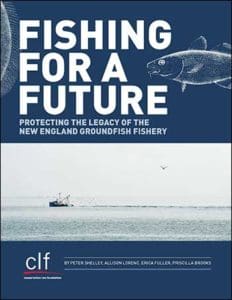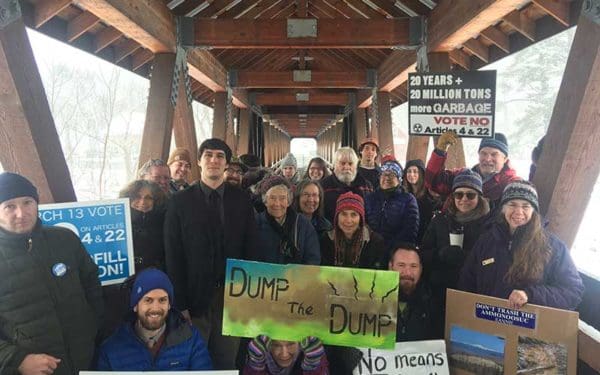Jan 21, 2022
A previous version of this blog was published in August, 2017 With the federal government stymied over any meaningful climate legislation, it’s up to the states to take the lead on curbing carbon pollution. Here in New England, such leadership is nothing new. Five New England states have climate laws in the books, mandating cuts… Continue reading Carbon Pricing 101
Jan 19, 2022
CLF examined the fishery management system that Carlos “the Codfather” Rafael exploited so successfully – a system that seems to have increasingly benefitted the wealthiest, most politically powerful fishing operations at the expense of traditional community-based fishermen.
Jan 14, 2022
“Unfortunately, New Hampshire has been on this treadmill of constantly expanding landfill capacity. There’s now a proposal by Casella to build a brand new landfill. And it’s an approach that threatens the health of our communities and natural resources like the Ammonoosuc River,” said CLF’s Tom Irwin.
Jan 14, 2022
Co-founders of Mei Mei Dumplings and Food Waste Feast, Mei and Irene are on a mission to pass along their professional knowledge for reducing food waste in the kitchen. Designing dishes that use up everything in the fridge and offering workshops on how to make your dollars go further by cooking smarter, the sister-duo is on the cutting edge of the food waste revolution.
Jan 13, 2022
“By getting Casella to remove a decade’s worth of contaminated sediments from a polluted channel flowing into the Ammonoosuc, this settlement directly addresses a legacy of landfill pollution,” explained Tom Irwin, Vice President and Director of CLF New Hampshire. “The problems addressed in this case are yet another reason why New Hampshire needs to focus on reducing waste rather than burying it in landfills.”
Jan 12, 2022
The state’s Public Utilities Commission recently reversed nearly a decade of progress on energy efficiency in the state.
Jan 12, 2022
Manufacturers should not be allowed to reap profits while their toxic products and packaging harm our health and environment. Producer responsibility laws have the potential to drastically cut our waste generation and disposal, as well as their harms. And all while holding producers accountable.
Jan 07, 2022
“The PUC continues to dig its feet in on its radical and arbitrary decision, and New Hampshire families will pay the price,” said CLF attorney Nick Krakoff. “Energy efficiency programs help us reduce our energy use, which means lower bills and less damaging climate pollution from fossil fuels. This devastating blow to families, businesses and our planet cannot be allowed to stand, and CLF will continue the fight to overturn this irresponsible action from the PUC.”
Jan 06, 2022
During my recent stint on parental leave, I tried to disconnect from my Zero Waste work. But I quickly realized that there’s no off-switch for corporate greenwashing. So, I’d like to set the record straight. What does circular economy really mean? And why will single-use plastics and waste-burning technologies never have a place in it? Here are the answers.
Jan 04, 2022
CLF’s unique social investment funds flip that script. With our business, philanthropic, and community partners, we have created a national model for ensuring that change is led by the people already living in a neighborhood, united by a common vision for their future.









